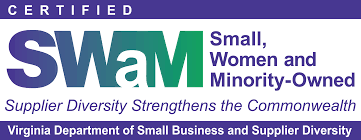Compliance Calendar: Getting the Jump on Annual Environmental Reporting Requirements
When it comes to compliance, adhering to the myriad of environmental reporting requirements is key. As industries and businesses continue to evolve, so do the regulations governing their environmental impact. Among the crucial obligations that organizations face are the annual reporting mandates set forth by various environmental agencies.
ONE Environmental understands the significance of these reporting obligations and the complexities that come with them. Below is a friendly reminder of just a few of the major reporting requirements and deadlines that the ONE team can help operators manage, prepare for, and submit.
As we close out 2023, it’s a great time for operators to summarize key data to get the jump on reporting in the new year.
EPCRA Reporting: Tier II (Section 312) Due March 1 annually, TRI (Section 313) Due July 1 annually.
Passed in 1986, the Emergency Planning and Community Right-to-Know Act (EPCRA) addresses chemical-related safety and environmental concerns, specifically around how hazardous chemicals are stored and handled. In general, Tier II reporting is required under Section 312 of EPCRA for any facility with 10,000 pounds or more of a hazardous chemical at any one point in a calendar year. Note that certain chemicals may have lower thresholds. Also, other sections of the EPCRA have different reporting requirements. For example, Section 313 Toxic Release Inventory (TRI) reporting is due annually on July 1st, Section 302 notifications are due within 60 days after receiving a chemical shipment or producing a hazardous substance and Section 304 release notifications must be made immediately.
RCRA Biennial Reporting for LGQs: Due March 1 of even years.
The Resource Conservation and Recovery Act (RCRA) has its own set of reporting requirements related to hazardous wastes. All RCRA Large Quantity Generators (LGQs) of hazardous waste in most states must file a Biennial (every other year) Report. This report is due each even year for the previous odd year’s hazardous waste generation. Keep in mind that this is a biennial report, and it is only required for Large Quantity Generators. Facilities that are generating within Very Small Quantity Generator (VSQG) or Small Quantity Generator (SQG) limits are exempt from this particular reporting requirement.
EPA Refrigerant Reporting: Due March 1 annually.
The EPA requires facilities to document and retain service and maintenance records for certain appliances containing refrigerants, depending on the unit type and refrigerant capacity. Facilities are also required to submit a report to the EPA by March 1st of each year for specific types of units, if in the calendar year 125% of the unit’s capacity is added to the appliance.
EPA Air Reporting Requirements: Due annually.
The EPA’s Air Emissions Reporting Requirements (AERR) authorize state and local agencies to collect and submit emissions data each year. This includes Air Emissions Inventories that are due to state agencies often by March 1st, April 15th, or June 30th. Most states require these to be submitted electronically or online. Some facility operators must submit reports under the EPA’s Greenhouse Gas Reporting Program (GHGRP) that cover emissions from the prior calendar year that are due by March 31st of each year. In addition, Annual Compliance Certification (ACC) under the EPA’s Title V air quality requirement must be submitted to many state agencies and the EPA by March 1st of each year.
Remember that simply knowing when reports must be submitted is just the start. Properly preparing and filing each report is also critically important. The fines and penalties can be steep for operators who let their programs slip out of compliance due to incomplete reporting or missed deadlines.
The ONE team has vast experience in these areas and stands ready to offer guidance and assistance throughout the entire reporting process. Contact us to discuss your specific environmental reporting requirements and how we can help you keep your programs compliant year-round.


